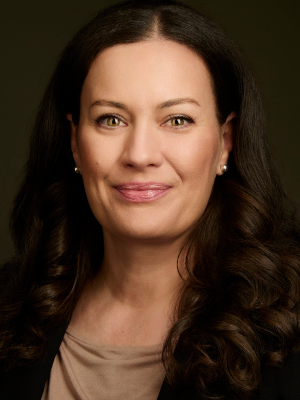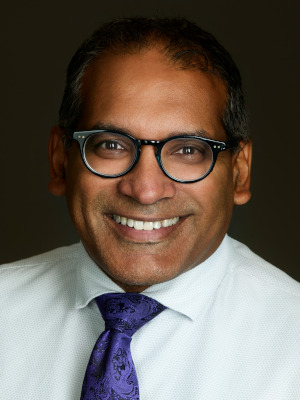Despite the outward trappings of success, high-net-worth individuals are far from immune to mental-health challenges. In fact, the pressures that accompany prosperity can quietly magnify other difficulties.
Add in a culture of silence—where emotional distress is hidden behind closed doors—and seeking help can be perceived as a weakness rather than wisdom.
But that stigma is slowly eroding. More individuals and families are recognizing that wealth does not provide immunity, and that family-wide supports in mental health are essential to sustaining not only their well-being but also their continuity and cohesion.
Here, four mental-health professionals weigh in on some of the most common issues affecting high-net-worth individuals.
Burnout
Among the causes of burnout are performance-related pressures, expectations of success and the maintenance of a professional image, says Rachel Lyon, a clinical psychologist and clinical lead at the Residence at Homewood in Guelph, Ont.

The signs and symptoms of burnout include emotional exhaustion, fatigue, irritability and a sense of being overwhelmed that doesn’t resolve with rest.
“Despite working long hours, they might report difficulty focusing, accomplishing less, or a decline in creativity,” Lyon says. “These changes often contribute to increased anxiety, worry, low mood or reliance on substances.”
Burnout can also manifest as a sense of detachment from work, or a loss of meaning and motivation. “Many of our clients report restless sleep or insomnia, along with physical complaints such as headaches, muscle tension or other somatic symptoms,” Lyon says. Perfectionism and high expectations for success are associated with the development and maintenance of burnout, she adds.
It can take time for burnout to be recognized, says Esanju Bonga, a Waterloo, Ont.-based psychotherapist and family relational wealth advisor.
“We can quickly adapt to the symptoms and assume exhaustion and emotional numbness are just parts of a job, rather than signs of gradual deterioration,” Bonga says. “Many clients I work with indicate that it is the people closest to them who notice they haven’t been themselves for a long time and urge them to get support.”
Identity crises

Many wealthy people experience identity crises, Bonga says.
“Those who come into money later in life often feel disconnected from who they once were, while those born into wealth struggle to define themselves beyond a family name or business. It can leave them asking, again and again, ‘Who am I outside of my money?’”
Wealthy clients often come to Marc Colbourne, a Toronto-based psychotherapist, because they’re having a difficult time adjusting to retirement. Often the decision to retire wasn’t completely theirs, having been caused by downsizing, forced retirement or a spouse or partner who wants them to retire.
“They have tremendous difficulty in finding themselves again because so much of their identity was wrapped up in their work and ability to make money,” Colbourne says.
Reframing the next chapter can shift how someone approaches this new phase of life, Bonga says. “Knowing that there is freedom to define retirement can alleviate fears around suddenly having nothing to do.”
Isolation and loneliness
For many wealthy individuals, isolation isn’t about being alone—it’s about feeling unseen.
“They often question the motives of those who know about their affluence, yet still feel misunderstood by both wealthy and non-wealthy peers,” Bonga says. “Genuine connection becomes rare, and finding someone who truly understands them can feel almost impossible.”
Some clients who suddenly gain wealth feel it is necessary to live below their means to avoid being “discovered,” Bonga says, though many have had hurtful experiences where others treated them differently, and relations deteriorated after their new-found wealth was revealed.
That’s why Bonga works with clients to “address past wounds, determine when boundaries are necessary, and make distinctions around boundaries and the fear of getting hurt again.”
Lack of purpose
Many wealthy individuals struggle to find purpose beyond accumulation, and their motivation wanes once money can no longer measure success.
Without meaningful goals to strive for, even abundance can begin to feel empty, Bonga says. “When financial security is no longer a question, a deeper one often emerges: ‘What now?’”
For Colbourne, treatment involves identifying tools and strategies that help clients feel like they have some control over whatever is going on in the moment. “This often helps the client feel like they have the space to then do more of the depth work to find meaning in their shifting identity,” he says.
Shame and guilt
Behind the comfort of wealth, many grapple with quiet shame and guilt.
“They feel unworthy of what they have, or anxious about how to handle it responsibly,” Bonga says. “The burden of managing wealth and choosing whom to trust can be overwhelming, compounded by a constant fear of judgment from others who see only privilege, not pressure.”

At the same time, shame and guilt can present barriers to seeking help, says Kam Balchand, a psychiatrist at the Residence at Homewood.
“The wealthy and accomplished can be particularly susceptible to overwhelming guilt for experiencing any kind of mental distress,” Balchand says. “We hear that a lot from clients, particularly when talking about depression. They feel that they should not be depressed. They say, ‘I’ve had a good childhood, a good life, and all these comforts.’ This makes it harder to ask for help.”
It isn’t often that a client engages in therapy because of one of these issues in isolation, Colbourne says.
“They may initially seek treatment because of one particular stressor or experience, but once they begin to unpack everything in therapy they come to understand how these issues are interconnected. For example, they may know they feel burnt out but not recognize that this is also linked to their use of maladaptive coping mechanisms.
“Or they may want to address an addiction issue, but not understand how this is related to the other concerns they are having.”
Adam Bisby is a Toronto-based writer, editor and consultant who contributes regularly to national and international publications such as the National Post, The Globe and Mail, the Toronto Star, MSN and SHARP magazine. Over the last 30 years he has written about real estate and housing, finance and investment, technology, food and wine travel, and health and wellness, among other areas. He began contributing to Canadian Family Offices in 2021.
The Canadian Family Offices newsletter comes out on Sundays and Wednesdays. If you are interested in stories about Canadian enterprising families, family offices and the professionals who work with them, but like your content aggregated, you can sign up for our free newsletter here.
Please visit here to see information about our standards of journalistic excellence.




